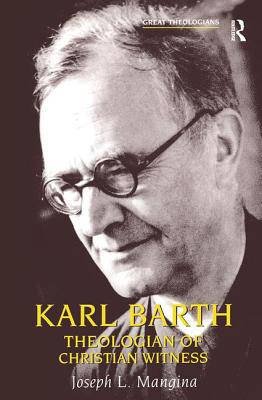
- Afhalen na 1 uur in een winkel met voorraad
- Gratis thuislevering in België vanaf € 30
- Ruim aanbod met 7 miljoen producten
- Afhalen na 1 uur in een winkel met voorraad
- Gratis thuislevering in België vanaf € 30
- Ruim aanbod met 7 miljoen producten
Zoeken
€ 58,45
+ 116 punten
Uitvoering
Omschrijving
The thought of Karl Barth (1886-1968) has undergone a remarkable renewal of interest in the past twenty years. Joseph Mangina's Karl Barth: Theologian of Christian Witness offers a concise, accessible guide to this important Christian thinker. Uniquely among introductions to Barth, it also highlights his significance for Christian ecumenism. The first chapter describes Barth's extraordinary life, from his youthful break with liberalism during the First World War, to his mature theology in the Church Dogmatics. Subsequent chapters offer a detailed reading of this magisterial work, and place Barth in dialogue with five contemporary thinkers: George Lindbeck on revelation, Michael Wyschogrod on election, Stanley Hauerwas on creation, Robert Jenson on reconciliation, and Henri de Lubac on the church. These ecumenical conversations not only set Barth's thinking in greater relief, but serve to demonstrate its continuing theological fruitfulness. The book concludes by examining Barth's wider significance for the church in our time.
Specificaties
Betrokkenen
- Auteur(s):
- Uitgeverij:
Inhoud
- Aantal bladzijden:
- 224
- Taal:
- Engels
- Reeks:
Eigenschappen
- Productcode (EAN):
- 9780754604587
- Verschijningsdatum:
- 25/11/2004
- Uitvoering:
- Paperback
- Formaat:
- Trade paperback (VS)
- Afmetingen:
- 156 mm x 233 mm
- Gewicht:
- 452 g

Alleen bij Standaard Boekhandel
+ 116 punten op je klantenkaart van Standaard Boekhandel
Beoordelingen
We publiceren alleen reviews die voldoen aan de voorwaarden voor reviews. Bekijk onze voorwaarden voor reviews.











